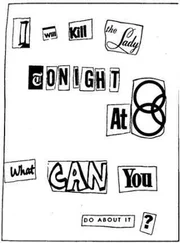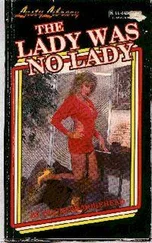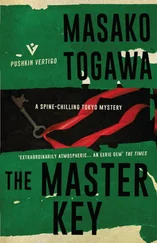“No, come to think of it, not for quite a while. He used to be a regular in the local bars, but not anymore. Moved on to some other area, I suppose.”
At this, the woman looked disappointed, but she opened her handbag nonetheless and pulled out a thousand-yen note. As she handed it to them, she added, “If there are any other bars around here where he used to go, please tell me.”
“Other bars? Yes, there were one or two; now, let me see.” And after a little thought, he reeled off the names of several bars. The woman wrote them down carefully in a notebook and left.
“I suppose it was all right to tell her that much,” said the old fellow.
“You mean, maybe she’s got it in for the professor and wants to make trouble?”
“Yes, but no need to worry, I suppose. I mean, it was all true, what I said, and nothing bad about him. She didn’t look like a policewoman.” He pocketed the thousand-yen note. “All that matters is that we got well paid.”
Thereafter, whenever he went into one of the bars, the names of which he had given to the woman, the old fellow always made sure to ask about her, but never with any result.
“No sign of that woman? The one who asked about the professor, the man with the deep bass voice?” Always, the answer was no.
“An odd one, she was. Anyway, we did our best to help. But what’s she up to, I wonder?” He racked his brains to no avail. “Well, that’s life, I suppose. People are here today, gone tomorrow. Just like the wind, people are. I mean, they go and drink at the same place for a while, and then just vanish. Plenty of cases like that, come to think of it.”
“Well,” said his young companion philosophically, “that’s the entertainment business for you. A chancy trade, with customers always coming and going.”
And there they left it. After a while, they forgot all about the inquisitive woman with the mole on her nose.
2
Asia Moral University is located on a hill outside Tokyo, some fifteen minutes by bus from K Station on the Chuo Line. It is generally known as A.M.U.
It stands in broad grounds amidst the woodlands of the plain of Musashi. In the center of the campus stands a fine, three-story building, the center for studies, and in the surrounding grounds there are spacious dormitories for students and the faculty, who all live in. The student body includes many from elsewhere in Asia and even from Africa, so not much Japanese is heard on the campus. English is the most common language used at A.M.U.
The students are allowed out to the local centers of amusement on Sundays and national holidays; otherwise, they pass their lives in this monastic atmosphere concentrating on their studies.
It was at 1 p.m. on the tenth of October that a bus drew up at the bus stop in front of the university, depositing a single female passenger there. The university operates a two-semester system, and it was still vacation time. As the cloud of dust thrown up by the bus settled, the woman removed the handkerchief that she had kept pressed to her face, replacing it in her handbag and straightening the collar of her kimono before moving on.
She walked down the narrow country road for about five minutes, which brought her to the gates and the broad drive leading to the university. She stood there for a while, gazing in, and then, seeming to change her mind, turned and went back the way she had come. Just beyond the bus stop was a shabby store selling candy, bread, cigarettes, and other small necessities of daily life. It also had a public telephone. It was an unprepossessing sort of a shop; a thin film of dust covered the goods. It did not seem likely to attract many customers.
The woman went to the phone and picked up the receiver. Immediately an old crone emerged from the shadows at the rear of the shop, her eyeglasses slipping down her nose.
“Calling Tokyo?” she asked sharply. “If you want long distance, I’ve got to do it for you.”
The woman shook her head and covered her face with her handkerchief. The old woman withdrew into the shadows but continued to watch her. It seemed that the woman was calling the university.
She got through to the switchboard. She had a list of faculty members open in front of her.
“Professor Matsuyama, please. He is responsible for the choral society, isn’t he?”
“Yes, madam. Putting you through now.”
Saburo Matsuyama, Professor of the History of Church Music, was studying ancient scores in the library when the phone call reached him. Although he was a recognized authority in his field, he was now over seventy, and lecturing was no longer easy for him. He was also rather deaf, and nowadays his chief pleasures were playing the organ and conducting the choral society.
“Hello,” he said into the mouthpiece. “Matsuyama here. Who’s that?”
“Professor Saburo Matsuyama?”
“Yes, yes, who’s that?”
“I am from a matrimonial agency, Professor. I am ringing to inquire about one of your former pupils, a Mr. Ichiro Honda, who I understand used to lead the choral society.”
“Speak up, I can’t hear you.” Although the voice was polite, the woman seemed to be speaking through her nose. She repeated herself twice, raising her voice at the last occasion until he could hear.
“Oh, I see. Yes, ask me whatever you want to know.”
Guided by the woman’s questions, he began to expatiate on the university career of Ichiro Honda. Fortunately, Honda had been an excellent student, and the professor remembered him well. Also words of praise, so important on these occasions, came easily to him. He talked enthusiastically of the diligence, the musical aptitude, and even the good looks of his former pupil. What else could he say?
“Oh, yes, there’s one other thing I’ve just remembered, which goes to show what a fine young man he was. Honda has a rare blood type—only about one in several thousand have it, I gather. Yes, well, he donated blood when he was a student and saved the life of a baby. Yes, it was in all the newspapers at the time, I seem to remember. How did we know he had blood in that group? Well, madam, we have an American Institute of Biology here, of which we’re very proud, and we note every student’s blood type.”
“What type was it? Can you tell me?”
“I can’t remember exactly. But if you ring the Institute, they’ll certainly have it on record.”
The professor suddenly realized that having a very rare blood type was not necessarily conducive to marital negotiations and tried to rectify his error.
“Well, an unusual blood type shouldn’t affect his married life, you know. Just ring the Institute and they’ll tell you. By all means use my name when you talk to them if you like. The switchboard will put you through. By the way, how is Honda nowadays? I gather he went to the United States and studied computer sciences there. I heard that he’s working in that field now and is very busy; we haven’t seen him for years.”
“Ah, yes, well… I’ll certainly tell him to visit you soon,” said the nasal voice hurriedly. She then excused herself and put the receiver down, cutting the professor off.
She dialed again, only this time the old woman could not make head or tail of what she was talking about. It seemed to be about blood, but it was all very complicated. It was not just the complexity of the conversation that was to stick in the old woman’s mind, causing her to remember the incident; rather, it was the disagreeable impression left with her by a customer who bought nothing and monopolized the telephone for so long. She watched the woman leave, sliding her glasses up from the tip of her nose, and it was then that the old woman noticed the mole at the base of one nostril.
The old woman was superstitious. Surely, she thought, only great wickedness could be denoted by a mole like that on a woman’s face.
Читать дальше












